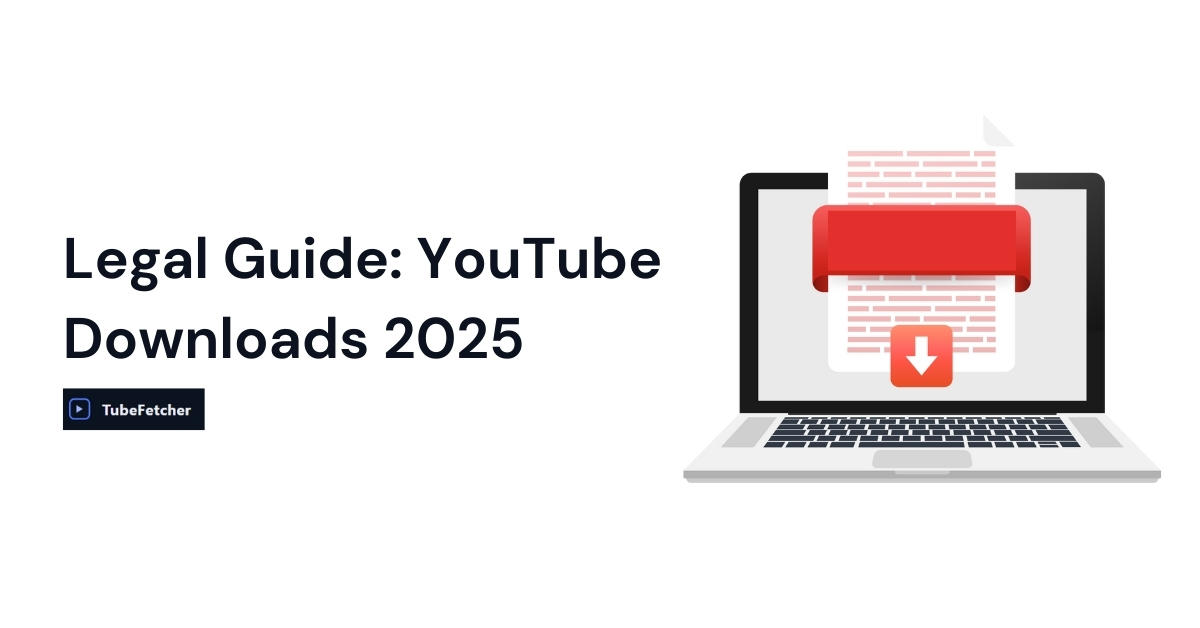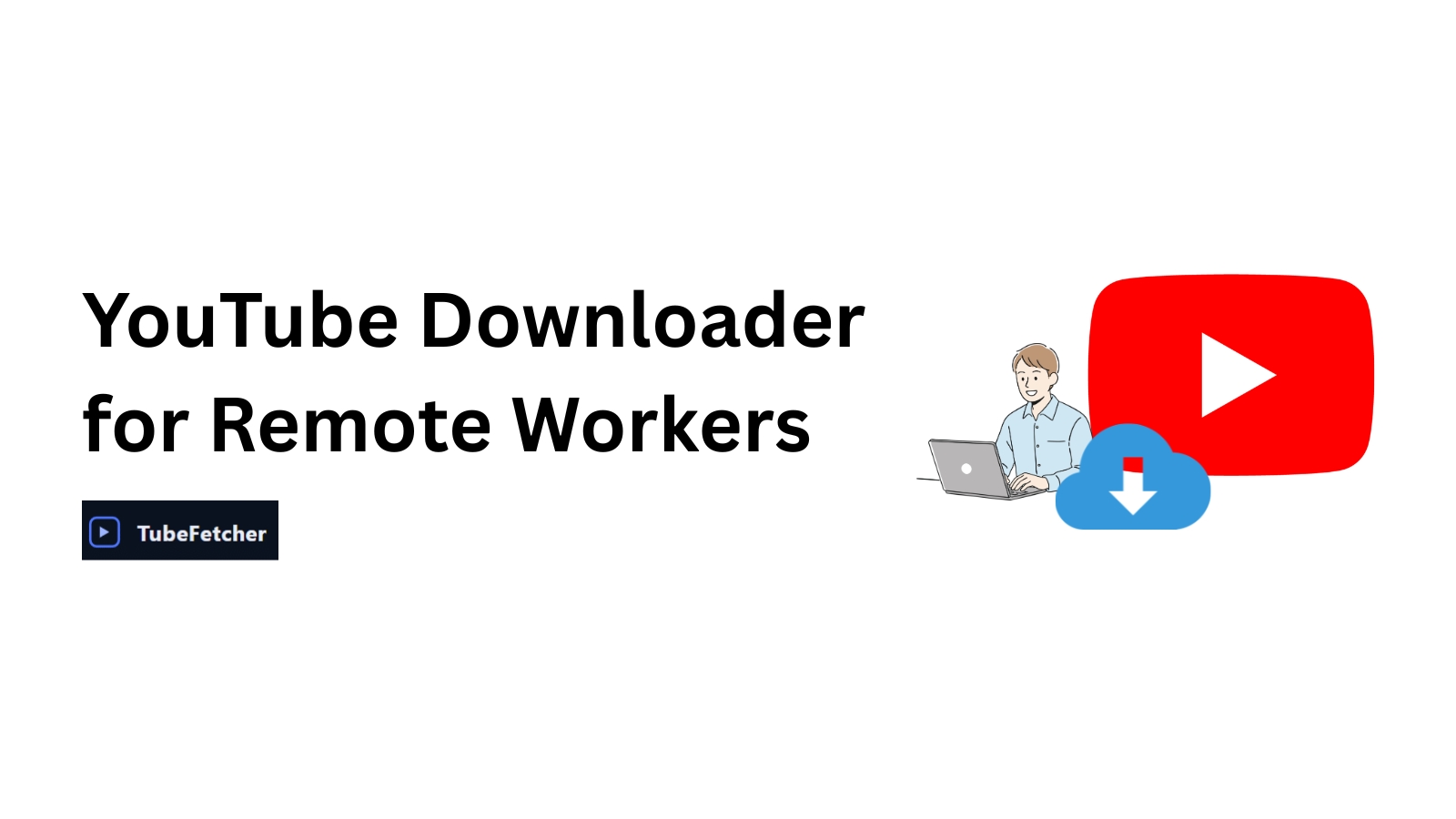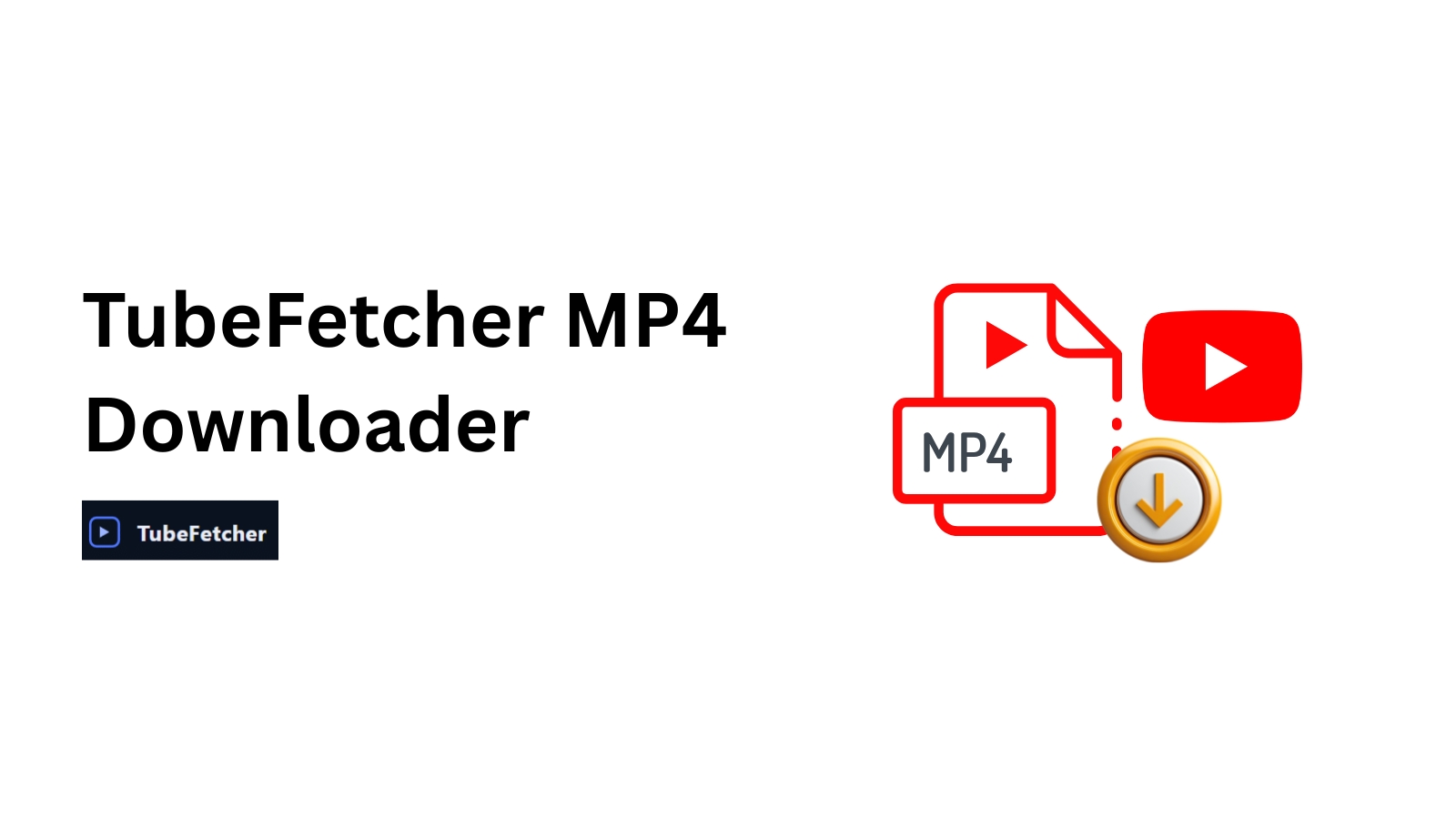Download YouTube videos is generally not legal unless done through officially authorized methods. Most videos on the platform are protected by copyright, and unauthorized downloading constitutes a violation of both YouTube’s Terms of Service and potentially national copyright laws.
Legal clarity depends on the specific method, purpose, and jurisdiction involved. For instance, downloading a video using a third-party tool without creator permission is not legal in the United States, United Kingdom, Germany, and most other countries.
Some use cases, such as downloading your own uploaded content or videos explicitly marked with a Creative Commons license, may fall under permitted scenarios. More details on these exceptions are covered in the relevant sections.
As users who care about ethical and compliant access, we recommend always exploring legal alternatives like YouTube Premium or tools that operate within safe and private environments such as TubeFetcher.
What YouTube’s Terms of Service Actually Say
YouTube’s Terms of Service prohibit downloading videos via unauthorized tools or services. The terms clearly state that users must not access content outside of YouTube’s own playback interface, embeddable player, or officially designated channels.
The relevant clause specifies that users may not download, copy, or store content unless explicit permission is granted by YouTube or the content owner. Bypassing these rules, even for personal use, is considered a breach of agreement.
YouTube enforces these policies to protect creators and to ensure content is monetized appropriately. Violating these terms may lead to account termination or legal claims under digital rights law, such as the DMCA in the U.S.
In our guide on how to download YouTube videos, we discuss only the methods that respect YouTube’s platform rules.
When Downloading Becomes Copyright Infringement
Downloading YouTube videos without permission is a copyright violation when the content is not owned by the downloader or explicitly marked for reuse.
The types of infringing behaviors are given below:
- Saving music videos for offline playback via third-party tools
- Clipping documentaries or vlogs without licensing
- Reposting downloaded videos to social platforms
Fair Use, often misunderstood, is not a license to freely download. It is a narrow legal defense, evaluated on a case-by-case basis, applicable only to specific contexts such as education, criticism, or transformative commentary. Even in those cases, using the entire video undermines the fair use claim.
YouTube supports Creative Commons licensing and allows creators to choose that option when uploading. Videos marked under this license may be reused, with proper attribution, but are still subject to limitations.
We built TubeFetcher to help users avoid copyright infringement by ensuring downloads remain on local devices and outside of public redistribution.
Is Downloading YouTube Videos Legal in My Country?
The legality of downloading YouTube videos depends on regional copyright laws, with significant differences between jurisdictions.
The legality by country is summarized below:
- United States: Fair use may apply, but unauthorized downloading of full copyrighted videos remains unlawful.
- United Kingdom: Personal downloading is illegal under the Copyright, Designs and Patents Act 1988, except for very limited private study use.
- Germany: Strict enforcement of intellectual property laws makes unauthorized downloading a high legal risk.
- India: No specific law mentions YouTube video downloads, but general copyright law prohibits unauthorized copying.
Regardless of location, using tools that store downloaded videos on external servers or bypass platform protection increases legal exposure. TubeFetcher solves this problem by operating as a private-use downloader, keeping all activity local to your device.
Legal Ways to Download YouTube Videos Without Breaking Rules
Downloading YouTube videos legally is possible only through permitted methods. YouTube offers authorized ways to access videos offline without violating its Terms of Service or copyright laws.
The legal methods are given below:
- YouTube Premium: Subscribing to YouTube Premium allows users to download videos within the app for offline viewing. These videos are not saved permanently on the device and can only be viewed inside the platform’s ecosystem. Learn more in our detailed guide on how to download YouTube videos.
- Creator’s Explicit Permission: Downloading is legal when the video owner grants written or recorded permission. This is common for collaborations or licensed reuse agreements.
- Creative Commons Videos: YouTube provides a Creative Commons filter, allowing users to locate content legally reusable under specific terms. Proper attribution is usually required.
- Your Own Uploaded Content: Downloading videos from your own channel via YouTube Studio is permitted and often used for backup purposes.
- Using Tools That Operate Within Legal Scope: Applications that do not host or redistribute content, such as TubeFetcher, are designed to support ethical video access for personal use only.
Any method that involves bypassing YouTube’s API, terms, or DRM mechanisms is not a valid legal route.
Can You Get Banned or Sued for Downloading YouTube Videos?
Yes, downloading YouTube videos through unauthorized tools carries real consequences.
The penalties for violating YouTube’s Terms or copyright laws are given below:
- YouTube Account Termination: Using third-party downloaders or distributing copyrighted content can result in permanent suspension of your YouTube account.
- Copyright Infringement Lawsuits: Downloading and redistributing copyrighted material, even unintentionally, may lead to DMCA takedowns, fines, or court cases, depending on jurisdiction.
- Monetary Damages: Creators and platforms may pursue financial compensation for content stolen or reused without permission.
- ISP Warnings: In countries like the U.S. and Germany, Internet Service Providers may send warnings or notices for repeated copyright violations.
Private users rarely face prosecution for personal offline downloads. However, once content is reuploaded, shared publicly, or monetized, the risk of legal action increases dramatically.
We developed TubeFetcher specifically to reduce these risks. It ensures downloads are not stored online, are not shared publicly, and are kept for individual offline use only.
How TubeFetcher Encourages Ethical Downloads
TubeFetcher promotes compliant, private, and ethical video access. Unlike server-based downloaders that expose users to security, privacy, and legal risks, TubeFetcher operates entirely on the user’s local device.
The core values behind TubeFetcher are given below:
- Local-Only Downloads: Videos are not processed or stored on external servers, reducing the risk of data leakage or redistribution.
- No Account Tracking: TubeFetcher does not require sign-ins or collect viewing history, aligning with privacy-first usage.
- Terms-Aware Design: The tool is designed to help users download content they own, have permission to access, or that is licensed for public use, ensuring compliance with YouTube’s rules.
- Educational Guidance: Through content like our YouTube Downloader Guide, users can make informed, legal decisions about how to use downloader tools responsibly.
TubeFetcher exists not to break the rules, but to offer a trustworthy solution for people who value ethical and private access to content they care about.
Respecting YouTube’s Legal Boundaries
Understanding the legality of downloading YouTube videos is essential for responsible content use. Most videos on YouTube are protected by copyright and governed by strict platform rules. Downloading them through unauthorized tools is a violation of both the YouTube Terms of Service and potentially national or international copyright laws.
Legal exceptions exist, including:
- YouTube Premium, which provides built-in offline viewing functionality.
- Creative Commons-licensed videos, which allow permitted reuse with proper attribution.
- Fair use scenarios, such as educational commentary or critique (jurisdiction-specific and case-dependent).
- Private tools, like TubeFetcher, that focus on user safety, personal access, and ethical compliance.
Our goal is to help users stay informed, act responsibly, and avoid legal consequences while enjoying access to video content in a compliant way.




